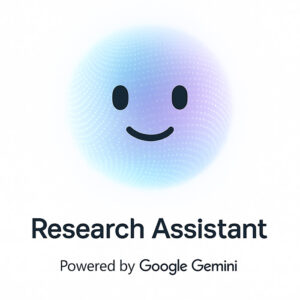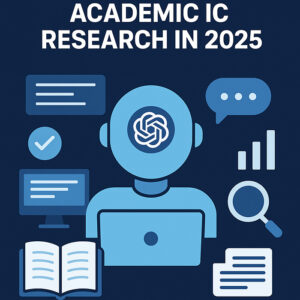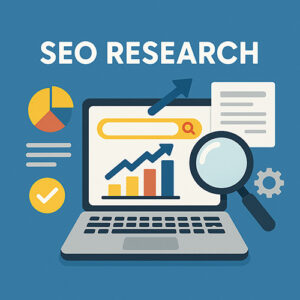AI and Machine Learning in Healthcare: Revolutionizing Patient Care
Imagine a world where technology helps save lives by predicting serious health issues hours before symptoms appear. This isn’t a futuristic scenario—it’s happening right now in hospitals worldwide. Artificial Intelligence (AI) and Machine Learning (ML) are rapidly transforming healthcare, from diagnosing diseases earlier to personalizing treatments and streamlining hospital operations.
AI in Diagnostics: Catching Disease Early
One of AI’s most powerful applications in healthcare is diagnostics. AI systems can analyze vast patient data—symptoms, medical history, lab results—to spot patterns humans might miss. For example, Johns Hopkins researchers developed an AI system that detects early signs of sepsis by continuously monitoring patient data. This system reduced sepsis-related deaths by 20%, catching the condition hours earlier than traditional methods.
AI isn’t just limited to severe conditions like sepsis. Algorithms trained on electronic health records can predict complications like kidney injury or patient deterioration, allowing doctors to intervene promptly. Even symptom-checker apps are becoming more reliable, with advanced AI models assisting doctors rather than replacing them.
In a recent study, GPT-4, a large language model, accurately diagnosed challenging medical cases 57% of the time—outperforming human doctors who scored around 36%. Though not perfect, this highlights AI’s potential as a valuable diagnostic tool, providing a second opinion or catching overlooked details.
Personalized Treatments: Tailoring Healthcare
Every patient is unique, and AI helps customize treatments based on genetics, lifestyle, and real-time health data. In cancer treatment, AI analyzes tumor genetics to suggest targeted therapies that improve outcomes. For instance, AI can predict whether a patient’s tumor will respond to immunotherapy, significantly enhancing personalized care.
AI also aids clinical decision-making by predicting the effectiveness of treatments based on historical patient data. At Cedars-Sinai Hospital, AI-assisted decisions improved management of chronic conditions like hypertension. Similarly, AI-powered insulin pumps personalize diabetes care by continuously monitoring and adjusting insulin delivery, demonstrating real-time adaptive treatment.
Medical Imaging: Enhancing Accuracy
AI is reshaping radiology, pathology, and ophthalmology by accurately interpreting medical images. AI tools can detect pneumonia, lung nodules, brain hemorrhages, and even breast cancer earlier and more reliably than traditional methods. In mammography, AI-assisted radiologists identified nearly 14% more cancers without increasing false alarms.
Pathology AI tools scan digital biopsy slides for cancer cells, often outperforming human pathologists in detecting microscopic tumors. AI-driven ophthalmology screening systems can diagnose diabetic retinopathy, allowing early treatment to prevent blindness.
Drug Discovery: Accelerating Innovation
Drug discovery is expensive and slow, but AI accelerates this process dramatically. Companies like Insilico Medicine have developed AI-designed drugs now in clinical trials. One AI-generated drug for lung disease entered trials within two years—an unprecedented pace compared to traditional methods.
DeepMind’s AlphaFold, another groundbreaking AI, predicts protein structures essential for drug development, significantly speeding research. Such innovations reduce the cost and time of discovering effective new treatments, potentially revolutionizing medicine.
Hospital Workflow: Improving Efficiency
AI optimizes hospital operations by predicting patient needs, managing resources, and automating administrative tasks. AI tools accurately forecast patient admissions, optimize surgery schedules, and manage medication inventories, reducing wait times and preventing errors.
Administrative tasks like documentation are increasingly AI-assisted, freeing doctors from paperwork and allowing more patient interaction. AI chatbots efficiently handle routine patient inquiries and scheduling, streamlining front-desk operations.
Ethical Considerations: Ensuring Responsible Use
Despite immense potential, AI in healthcare brings ethical challenges like data privacy, bias, transparency, and accountability. AI systems trained on biased data can inadvertently perpetuate disparities in healthcare, as seen in cases where algorithms unintentionally disadvantaged minority groups.
Ensuring AI is transparent and explainable helps maintain clinician and patient trust. Ethical guidelines and robust regulatory frameworks are critical to safe, equitable AI integration into healthcare.
The Future of AI in Healthcare
Looking ahead, AI will become deeply embedded in healthcare, offering personalized medicine, proactive care, and unprecedented diagnostic accuracy. Emerging AI technologies like digital twins—virtual patient simulations—will further personalize treatment by testing interventions virtually first. Edge computing and wearable AI devices will enable real-time health monitoring at home.
Ultimately, AI in healthcare isn’t about replacing human providers; it’s about enhancing their abilities. By handling complexity behind the scenes, AI empowers clinicians to focus more deeply on patient care, improving outcomes and quality of life.
The age of AI-driven healthcare has begun, promising a future of smarter, more efficient, and compassionate medical care.









